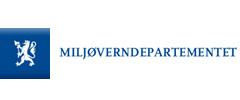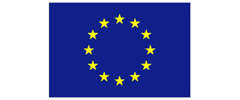CSD 13 Final Decisions
CSD-13 sets sanitation higher on the agenda, focusses on gender differences and identifies need for subsidies for the poor
07.06.2005 |Sascha Gabizon

WECF and Youth delegates at the last evening reception hosted by the Canadian government
to download the official final decision of the CSD13 as a PDF file:
The CSD 13 Final Decisions (44 KB).
The next CSD-14 will focus on Energy, Climate Change and Industrial Athmospheric pollution. Reports of countries are to be submitted during mid-2005. NGOs can provide information. See the official CSD website at http://www.un.org/esa/sustdev/
Final impressions of the UN Commission for Sustainable Development’s 13th session on Water, Sanitation and Habitat
CSD-13 managed to agree on a set of guidelines on the three thematic issues, water sanitation and human habitat.Extracts from the Negotiated Text, CSD-13 outcome document
WATER
Negotiations on the section of the outcome document dealing with water issues focused on how to accelerate progress toward the goal of halving by 2015 the proportion of people who are unable to access or afford safe drinking water.
A number of areas of disagreement arose during the negotiations, including disputes over text on financing and ODA, the ecosystem approach, and the role of various stakeholders.
Financing
On the issue of how to finance the large investments necessary to provide basic water services, the G-77/China preferred to focus on increasing ODA and reducing conditionalities placed on aid. Others, such as the EU, wanted to highlight the importance of cost recovery and the need to tap into national and international capital markets, as well as emphasize creating an “enabling environment” to attract investment. Switzerland sought references to user fees and incentives for private sector providers, and the US supported language on private-public partnerships. After some discussion, a compromise was reached on language that supported tapping all sources of financing, applying the full range of policy instruments and increasing capacity at all levels.
Stakeholders out, Women in
The G-77/China was also successful in removing references to the private sector and civil society as stakeholders that should be involved in the planning and management of water services, although references to youth, women and communities were retained.
Subsidies for the poor
On other issues, broad agreement was reached on the need to increase capacity, increase the priority given to water, target subsidies to the poor, tap into indigenous knowledge, invest in water-related research, and address the special needs of arid and semi-arid areas.
Final Text: The outcome document’s section on water calls for:
- accelerating progress toward the water access goal through increased resources from all sources, including ODA, and by using a full range of policy instruments such as regulation, market and information based tools, cost recovery, targeted subsidies for the poor and economic incentives for small scale producers;
- building capacity for effective water management and service delivery at local and national levels;
- developing and transferring low cost technologies;
- enhancing cooperation among riparian States and supporting basin-wide initiatives in Africa;
- developing systems to monitor the quantity, quality and use of water resources;
- improving water demand and resource management, especially in agriculture; and
- accelerating the provision of technical and financial assistance to countries needing help to meet the 2005 target on IWRM.
SANITATION:
Sanitation should get more money
On financing issues, the EU requested the addition of text on “specific and increasing budget allocations for sanitation,” which was included in the revised Chair’s text.
Refugees
The US, EU and Japan sought language calling for support for sanitation services to refugees, and the G-77/China and Azerbaijan requested text on support for refugee host countries. After some discussion, a combination of the different suggested texts on refugee and refugee host countries was adopted.
Cost recovery versus access for poor
Concerns in the G-77/China over reference to cost recovery were resolved when text was added noting that cost recovery would not hinder the poor’s access to water.
Gender-sensitive sanitation
The G-77/China was successful in adding language on promotion of gender-sensitive sanitation and hygiene education, linkages, and involving women, youth and community groups. The EU added a focus on separate sanitation facilities for boys and girls in schools.
Environmental sound water treatement systems are in
The G-77/China also sought to delete language on wastewater treatment and reuse and on assistance to deploy “environmentally sound” treatment systems. However, because of opposition from other delegations, this text was eventually retained. The EU suggested adding text on cost-recovery. In spite of some reservations on the part of the G-77/China on the EU proposal, language was ultimately added on this, although the EU’s original formulation was amended. On other issues, the US added language on “sustainable business models and financing mechanisms linked to capital markets”; Norway added language regarding information on water quality and reuse; and the EU and US sought, unsuccessfully, to insert language on “long-term programmes on environmentally sound wastewater management.” A request from the G-77/China to add text on action needed at the regional and international levels was not included in the final text.
Final Text: Delegations agreed to text calling on governments and UN agencies to provide sanitation, recognizing interlinkages and the positive impacts of sanitation on poverty reduction.
Access to Basic Sanitation: This subsection calls on governments and UN agencies to support the JPOI sanitation target through:
- increasing resources, including ODA and in response to countries’ needs, focusing on allocating a specific and adequatelyresourced budget for sanitation;
- employing cost recovery where appropriate with subsides for the poor;
- supporting the provision and maintenance of sanitation services to refugees and refugee host countries;
- capacity building for operation and maintenance; and
- ensuring access to culturally appropriate, low-cost and environmentally sound sanitation technologies.
Sanitation and Hygiene Education: Gender focus!
In this subsection, the CSD calls on governments and UN agencies to support national promotionof sanitation and hygiene education, for instance by promoting gender-sensitive education, incorporation of gender-sensitive hygiene curricula and separate facilities in schools, and involvement of women, youth and community groups in hygiene education.
Preparing for CSD-14
Following the adjournment of CSD-13, Chair Ashe declared open the first meeting of CSD-14 in order to elect its Chair and Bureau. Aleksi Aleksishvili, Minister of Economic Development of Georgia, was elected CSD-14 Chair by acclamation. The Commission also elected Javad Amin-Mansour (Iran) as a Vice-Chair, on behalf of the Asia region, while Yvo de Boer (Netherlands) was appointed Vice-Chair from the Western Europe and Others Group, and Adrián Fernández Bramauntz (Mexico) was elected from the Latin America and Caribbean Group. A Vice-Chair from the Africa region will be appointed at a later date.
CSD-14 will focus on energy in particular, as well as onclimate change and industrial emissions.
Download:
The CSD 13 Final Decisions (44 KB).
The CSD 13 Final Impressions (32 KB).
































